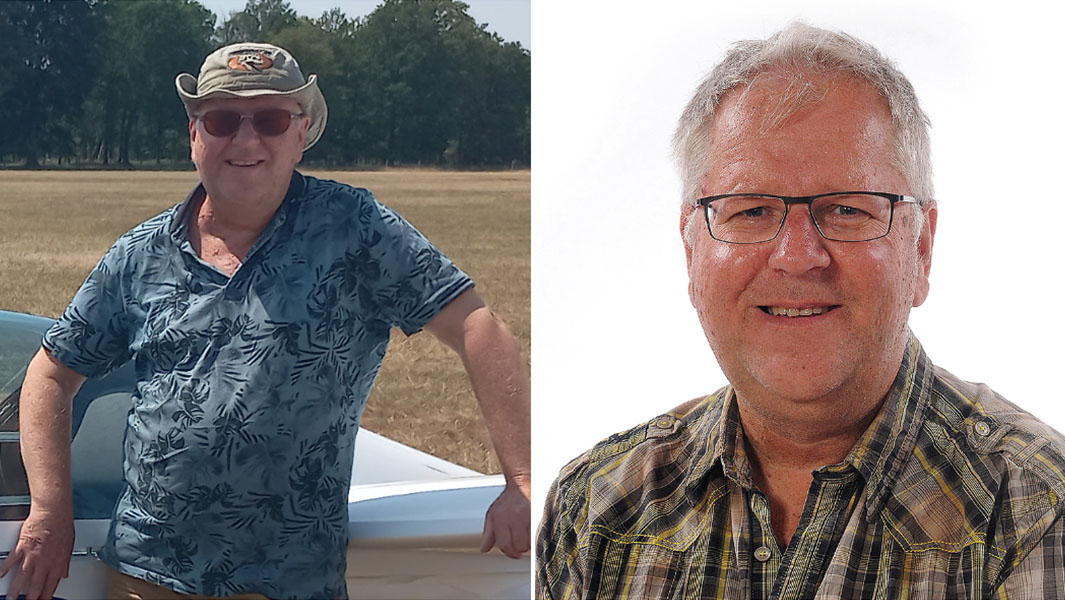Dutch man confirmed as world’s longest-surviving heart transplant patient

57-year-old Bert Janssen from the Netherlands has been confirmed as the world’s longest-surviving heart transplant patient, having lived for 39 years 252 days and counting since receiving a donor heart in 1984.
The previous record was 34 years 359 days, set by Canadian Harold Sokyrka in 2021.
At the age of 17, Bert was diagnosed with cardiomyopathy, a disease which makes it harder for the heart to pump blood around the body.
No heart transplants had been performed in the Netherlands at the time, and doctors told Bert that there was nothing they could do.
“Someone I did not know at all just told me that I was very sick and had only about six months left,” Bert recalls.
However, upon being brought back to his local hospital, his cardiologist, Dr Albert Mattart, who had ties with Harefield Hospital in England, informed Bert that he’d registered him for a heart transplant there.

Three weeks later, Bert was in Harefield for a physical examination and to wait for an available heart; he didn’t have to wait long though, as a week later, two hearts became available following a tragic car crash in which two young adults died.
One of the hearts was a match for Bert, who underwent surgery soon after, performed by transplant pioneer Prof Sir Magdi Yacoub. This was the 107th heart transplant performed at Harefield.
“From the moment I woke up after surgery, I felt more energy in my body than before,” Bert said.
“That felt very strange, the amount of energy I suddenly had.”
He returned home two weeks later, on 23 June, the same day that the very first heart transplant in the Netherlands was performed.

Bert says he had two rejections in the first few months after his operation, meaning his immune system began to ‘attack’ his new heart, but fortunately he’s had no further complications since.
However, he revealed that he’s experienced “considerable” side effects due to his medication: “In the first years after the transplant, I was not aware of the impact of my medication.
“Developing more and more side effects, it felt more and more like being at the mercy of the pills that I simply need to survive.
“My opinion is that less is more, and I would like to see a more critical attitude towards the amount of medication that is really necessary.”
Bert has enjoyed an active lifestyle since his transplant: he took part in the European and World Transplant Games several times; he built a house with the help of his wife, Petra, with whom he has two children; and he worked for over 30 years – first in a furniture shop, then as a yacht carpenter, then as a school janitor.
Although he retired in 2017 upon his doctor’s advice due to decreasing energy levels, Bert still enjoys getting his blood pumping by air gliding regularly.

“I could never imagine I would come this far, and I always looked up to others who had their donor heart longer than I had,” Bert said.
“It feels like an honour to have reached this milestone, but what I think is most important is that I set a benchmark for others.
“It is now officially proven that it is possible to come this far while having a donor heart. I assume the marker will yet move quite a bit further and I will be pleased if others will break my record in due course.”
If you love watching records being broken you should check out our Records Weekly series on YouTube...
Want more? Follow us on Google News and across our social media channels to stay up-to-date with all things Guinness World Records! You can find us on Facebook, Twitter/X, Instagram, Threads, TikTok, LinkedIn, and Snapchat Discover.
Don't forget to check out our videos on YouTube and become part of our group chat by following the Guinness World Records WhatsApp channel.
Still not had enough? Click here to buy our latest book, filled to the brim with stories about our amazing record breakers.


